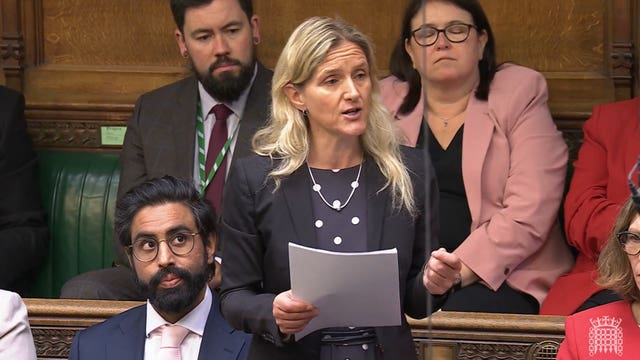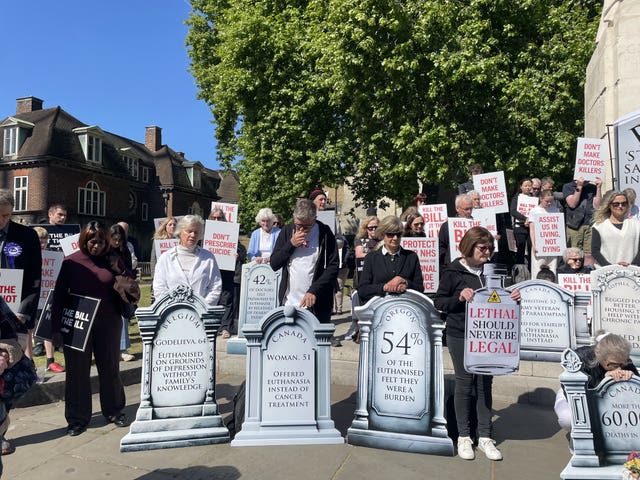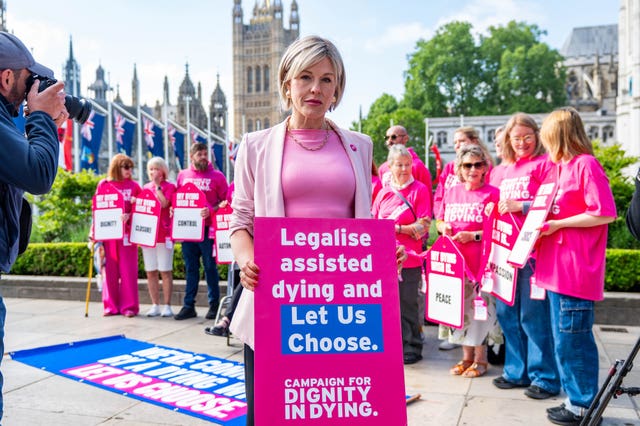MPs vote in favour of assisted dying opt-out for all healthcare workers
The Terminally Ill Adults (End of Life) Bill will return to the Commons next month.

No medics would be obliged to take part in assisted dying, under a change approved by MPs amid further impassioned debate on the controversial topic.
The Terminally Ill Adults (End of Life) Bill was debated for almost five hours on Friday.
It was the first time the proposed legislation had returned to the Commons since a historic yes vote in November saw a majority of MPs support the principle of assisted dying.
MPs voted for one new clause to be added to the Bill, which will ensure “no person”, including any medical professional, is obliged to take part in assisted dying.

Doctors already had an opt-out but the new clause extends that to anyone, including pharmacists and social care workers.
The at-times emotional debate saw supporters of changing the law argue the Bill has returned with strengthened safeguards after being amended in committee earlier this year.
But opponents have complained the Bill does not have enough protections and has been rushed through, with the criticism coming days after two royal medical colleges voiced their doubts on the legislation in its current form.
Dame Esther Rantzen, who is terminally ill and is one of the most high-profile backers of the Bill, appealed for MPs to vote for what she termed a “crucial reform”.
In a letter to MPs on the eve of Friday’s debate, she urged them to change the law “as so many other countries have, not for me and for those like me who are running rapidly out of time, but for future generations to have the right if necessary, not to shorten their lives, to shorten their deaths”.
She suggested some MPs opposed to the Bill have “undeclared personal religious beliefs which mean no precautions would satisfy them”.
This drew criticism in the Commons from Labour’s Jess Asato who branded the Childline founder’s comments “distasteful and disrespectful”.
An effort by Conservative MP Rebecca Paul preventing employees from providing assisted dying, while working for an employer which has chosen not to take part in the process, was rejected.
Health minister Stephen Kinnock said that amendment might leave workers with “conflicting obligations” and could make the service more difficult to access “if employers can prevent their entire workforce from participating in the provision of assisted dying”.
The Government is neutral on the Bill and any votes MPs make are according to their own conscience rather than along party lines.

In its current form the Bill, which applies only to England and Wales, would mean terminally ill adults with only six months left to live could apply for assistance to end their lives, with approval needed from two doctors and the expert panel.
Bringing her Bill back to Parliament, Labour MP Kim Leadbeater said assisted dying must be legalised to avoid terminally ill people acting out of desperation or making “traumatic” trips to Switzerland.
Following the Royal College of Psychiatrists (RCPsych) statement this week on its “serious concerns” including on numbers of psychiatrists available to sit on panels assessing a terminally ill person’s application, Ms Leadbeater told MPs said she “wouldn’t anticipate any problems” on staffing.

Other amendments discussed – but not voted on – on Friday included ensuring care homes and hospices can decide whether or not to be involved in assisted dying and that their funding would not be affected based on their decision.
Elsewhere, Labour’s Dame Meg Hillier spoke of her concern that patients could “feel pressured into ending their lives” if doctors are able to raise the prospect of assisted dying with patients first in a conversation.
Dame Meg has urged MPs to support her amendments which would mean that could not happen, and that health professionals could not raise the topic with under-18s.
Neither of those were voted on.
Another amendment preventing a person meeting the requirements for an assisted death “solely as a result of voluntarily stopping eating or drinking” – tabled by Labour’s Naz Shah – was accepted by Ms Leadbeater without a vote.
With dozens of amendments having been tabled for Friday, some MPs raised further concerns about the quality of the debate and the length of time allocated.
The current stage – known as report stage – will continue on June 13, when further debate will take place in the Commons.
If time allows on that day it is possible a third reading could take place, giving MPs another vote to either approve or reject the overall Bill and decide whether to send it on to the House of Lords.
Speaking to pro-change campaigners following Friday’s session, Ms Leadbeater said: “We’ve got further to go, but I think it was a reasonably good debate.”
Addressing a group in Parliament, including Dame Esther’s daughter Rebecca Wilcox, Ms Leadbeater became emotional, saying she gets upset “when we get obsessed with parliamentary procedure, when this is actually about human beings, and that’s what I find upsetting, because I think it’s not about a green book, or it’s not about a piece of paper”.





